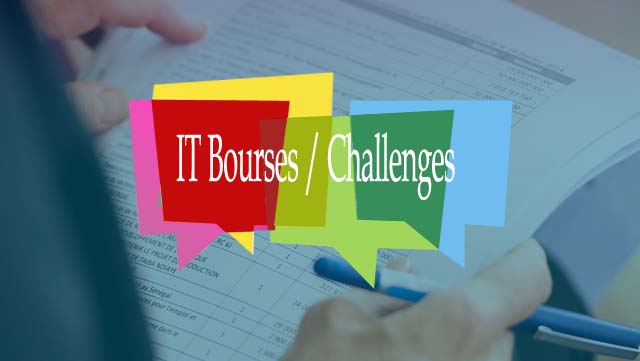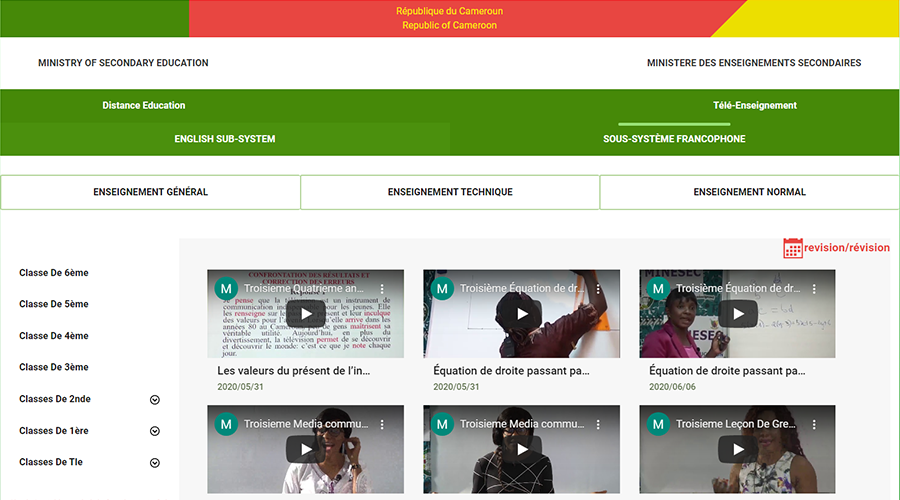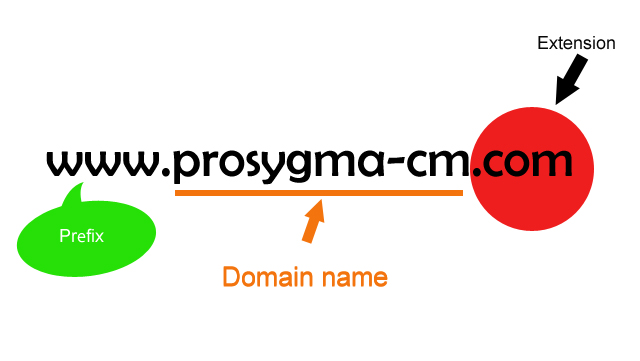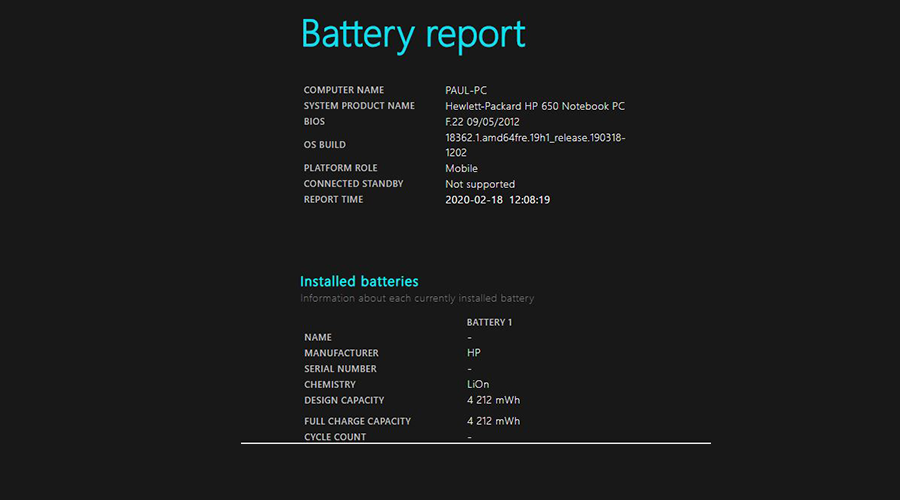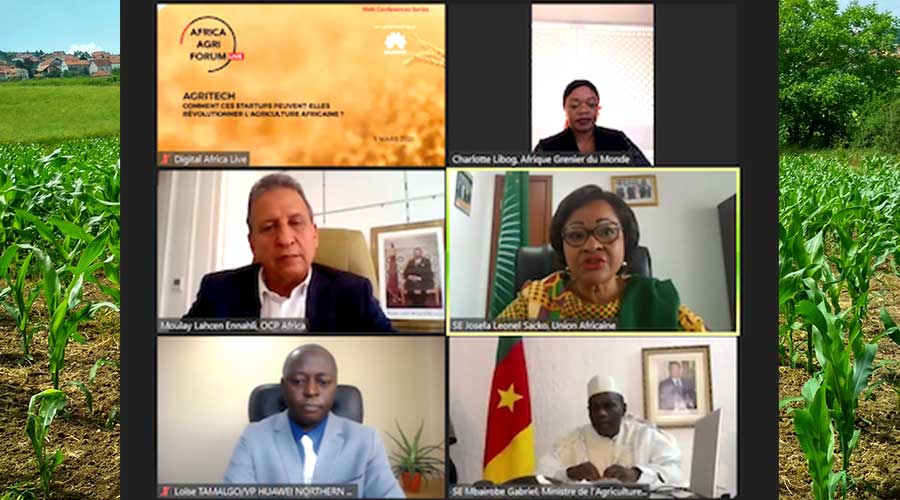
Digital Transformation for Agriculture in Africa: Huawei ready to accompany Cameroon
This is the message delivered by Mr. Loise Tamalgo, Vice President in charge of Public Relations for Sub-Saharan Africa of Huawei Northen Africa Region during a webinar as a prelude to the Africa Agritech forum announced next April.
"Agritech: how can start-ups revolutionize African agriculture?". This was the theme of a virtual seminar chaired by Cameroon's Minister of Agriculture and Rural Development (Minader), Gabriel Mbairobé, on March 5, 2021. In addition to this member of the Cameroonian government, also took part in this virtual discussion, Ms. Josefa Leonel Sacko, Commissioner for Agriculture, Rural Development, Blue Economy and Sustainable Environment at the African Union (AU); Loise Tamalgo, Vice President in charge of Public Relations for Sub-Saharan Africa of Huawei North Africa Region; and Moulay Lahcem Ennahli, Senior Vice President West Africa of OCP Africa.
In his speech, Minister Gabriel Mbairobé stressed the growing interest of the Cameroonian government for the development of both agriculture and information technology and communications (ICT). Therefore, the Minister appreciated the efforts of Huawei in the digitalization of this sector and said that the government of Cameroon is looking forward to a more advanced partnership with the Chinese high-tech equipment Huawei, already present in Cameroon in other segments: "The Ministry of Agriculture and Rural Development is accompanying the government through the Cameroon Digital Transformation Acceleration Project, which, in its component 3, aims to facilitate the implementation in the agricultural sector of digital solutions based on data, with the objective of increasing digital inclusion and the use of digital solutions by stakeholders in the agricultural value chain. In concrete terms, it is a question of stimulating innovation in this strategic sector for the Cameroonian economy," explained Minader.
In order to implement agritech in the country, this member of the government stressed, Cameroon is working to develop digital solutions to support farmers. This is the case, said Minister Mbairobé, of the interactive platform on soil fertility, an infrastructure in gestation that provides reliable information and data on soil fertility, to inform choices in agricultural policy, the platform of plant health monitoring and an interactive database on targeted sectors, which can monitor the health of crops and anticipate disasters. Also the Camargo platform, a portal that connects producers and buyers; the agricultural market information system; the agricultural commodities exchange, whose launch is imminent; the system of subsidies for producers by electronic voucher; and the agricultural training platform, which consists of the networking of training schools for agricultural jobs.
For Josefa Leonel Sacko, who says she has placed her second term at the AU under the sign of the agricultural revolution, with "the digital giant Huawei, the African Union could work to facilitate the extension of innovative agricultural technologies in countries that do not yet have access to them, particularly in the context of strengthening collaboration with the private sector. "Ms. Josefa Leonel Sacko also took the opportunity of this conference to appreciate HUAWEI and suggest that Huawei find a way to create an Application "SMART SEEDS" that could identify and better manage plants. All these initiatives and projects in Cameroon, stressed Josefa Sacko, the Commissioner of the African Union, are in line with "the strategy of digital transformation of Africa" adopted by the African Heads of State and Government during the 33rd General Assembly of the AU, and "in which digital agriculture occupies a prominent place. Indeed, Josefa Sacko stressed, "Technology and digital innovations open up a vast untapped potential for farmers, investors and entrepreneurs to improve the efficiency of food production and processing in Africa. This is an opportunity we must exploit.
In fact, seizing the opportunities offered by technology and innovation to develop agriculture on the African continent involves close cooperation with firms that have the know-how. This is the case of Huawei, whose vice-president in charge of public relations for sub-Saharan Africa, outlined the vision for agritech in Africa, especially in this period of Covid-19, characterized by an increase in the number of people (from 235 million to 600 million people because of the pandemic) in a state of food insecurity. While, at the same time, he recalled, Africa has 60 to 65% of the world's arable land.
In order to put an end to this African paradox, which is that the continent has an impressive agricultural potential, but at the same time has difficulties to feed its inhabitants, Loise Tamalgo proposes "digitalization, [which] is a good way to accelerate the development of agriculture. This is an important lever to be activated, especially since, he maintains, "digitalization in agriculture today is [only] at 6% of its potential [on the continent]. It is therefore a niche gain for start-ups," whose number of those operating in agriculture in Africa has increased by 110% since 2016, according to a survey by Disrupt Africa.
Incidentally, achieving the full potential of agritech in Africa, according to Huawei North Africa Region's vice president of public relations for sub-Saharan Africa, requires addressing challenges related to connectivity and access to energy and finance. Huawei already has solutions to these challenges. "At Huawei, we have solutions that bring 4G connectivity, combined with an energy source that is independent of traditional networks. In Cameroon, for example, we have a project to open up 1000 villages. We have already completed the project in 352 villages. This project consists of deploying green energy solutions combined with artificial intelligence to regulate consumption. (...) We are also conducting a Smart Irrigation project in Morocco, which allows remote and precise irrigation, using just the right amount of water to increase production," said Tamalgo.
According to this senior Huawei official, the training of talents is also an imperative in the quest for the development of African agriculture through digitalization. It is to meet this requirement, he stressed, the Chinese telecommunications equipment manufacturer, which claims the deployment of over 200,000 km of fiber optics in Africa in 20 years of presence, has been implementing for years on the continent its programs to develop the skills of young people in ICT. This is the case of the "Huawei ICT Competition", "Huawei ICT Academy", or "Seeds for the future".
Source : investiraucameroun


